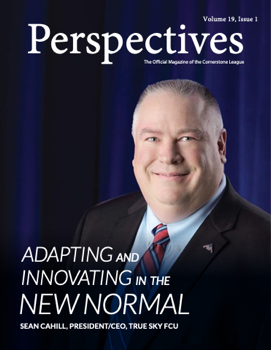
InfoSight Newsletter
Featured Post
New Help for Spotting, Avoiding, and Reporting Scams in Multiple Languages
Scammers speak your language. That's why the FTC now takes reports in multiple languages.
-
Save the Date! Hike the Hill in October
We hope you'll plan to join us in Washington, D.C., Oct. 23–25, for Cornerstone League's annual Hike the Hill. -
Question of the Week
Our credit union is considering using chatbots to reduce customer service costs. Is there anything we should be aware of? -
Webinar: Analyzing the CFPB’s new Small Business Data Collection Rule
As a result of the California Reinvestment Coalition’s 2019 successful lawsuit, the Consumer Financial Protection Bureau was forced to implement dormant portions of the 2010 Dodd-Frank Act requiring lenders make certain details public about their small lending activity. -
NCUA Designates June as MDI Awareness Month
The National Credit Union Administration is designating June as Minority Depository Institution Awareness Month to enhance the public’s understanding of the vital work minority depository institution credit unions perform in underserved communities nationwide. -
CFPB Issue Spotlight Analyzes “Artificial Intelligence” Chatbots in Banking
The Consumer Financial Protection Bureau released a new issue spotlight on the expansive adoption and use of chatbots by financial institutions -
Agencies Request Comment on Quality Control Standards for Automated Valuation Models Proposed Rule
Six federal regulatory agencies today requested public comment on a proposed rule designed to ensure the credibility and integrity of models used in real estate valuations. -
CFPB Finds that Billions of Dollars Stored on Popular Payment Apps May Lack Federal Insurance
The Consumer Financial Protection Bureau published an issue spotlight on digital payment apps heavily used by consumers and businesses. -
League InfoSight Highlight: Automation Considerations
It’s no surprise that credit unions are trying to transition to more automated processes and electronic transactions. It saves employee time and saves the credit union money and, on the surface, provides consistent results. So, what could possibly be the issue? -
Myth Busters Compliance Edition: Part 3
Final edition of this three-part series. -
Question of the Week
We have a member interested in opening a deposit account, but they are refusing to provide their address saying they participate in an Address Confidentiality Program (ACP). I thought we needed a physical address for Bank Secrecy Act (BSA) Customer Identification (CIP) purposes?
Subscribe
Sign up to receive the weekly InfoSight Newsletter email. Existing subscribers can manage their subscription.

